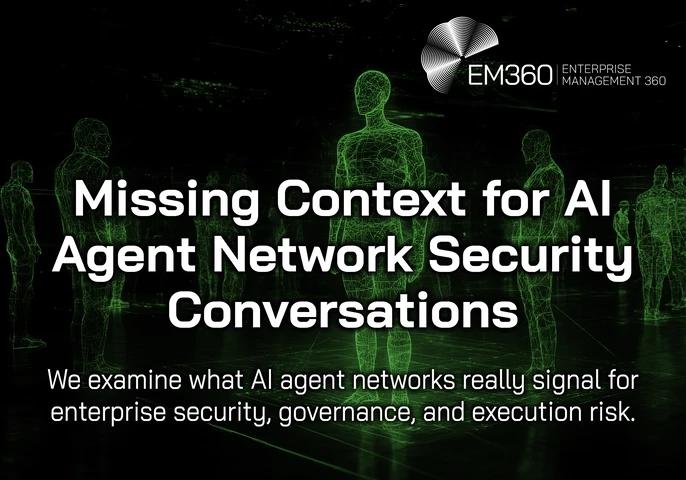While firewalls and antivirus software protect our devices, a new frontier of defense has emerged: cognitive security.
It's about shielding you from the subtle manipulation of misinformation, deepfakes, and algorithm-driven narratives that aim to hack your mind, not your computer.
The most vulnerable point isn't always a network vulnerability or a weak password; it's often the human mind itself.
Cognitive security builds resilience against sophisticated influence campaigns designed to alter public opinion, sow discord, or simply nudge us towards certain actions.
This rapidly evolving field recognises that safeguarding our digital lives now means defending against attacks that target the way we think, decide, and interact with the world around us.

We’ve got you covered with this comprehensive guide to cognitive security, including why it’s important to prioritise in your business.
What is Cognitive Security?
Cognitive security is all about defending against attacks that target human thinking instead of technology. It's a policy shift from protecting devices and networks to protecting people’s perceptions, beliefs, and decisions.
These attacks take advantage of how brains work including cognitive biases, emotions, and the way we process information. The goal isn’t to hack a computer; it’s to hack a person’s mind.
Attackers might spread fake news, use deepfake images or videos, or manipulate what you see on your social feeds. By creating fake accounts and using bots to amplify certain messages, they create the illusion that false ideas are widely accepted or true.
They also manipulate algorithms on social media platforms like Facebook, YouTube, and TikTok. These algorithms are built to keep you scrolling, so attackers feed them content designed to sway your opinions—sometimes in extreme or dangerous directions.
Search engines are also vulnerable to cognitive security threats. By using tactics like keyword stuffing, cloaking, and link manipulation, attackers can influence what information people see first—subtly shaping opinions without users realizing it.
Cognitive security acts as the shield, focusing on defensive strategies that protect individuals and organisations from manipulative influences. It’s about building resilience, fostering critical thinking, and using advanced tools to detect and counter misinformation.
In contrast, cognitive hacking is the attack. It refers to the tactics used by malicious actors to exploit human vulnerabilities, with the goal of reshaping perceptions, beliefs, and behaviors through psychological manipulation. These attacks often rely on disinformation, deepfakes, and algorithmic manipulation to achieve their desired impact.
Why Should You Care About Cognitive Security?
Reputation is everything.
A cyberattack on your systems can often be fixed. But an attack on your reputation can lead to damage that can stick around for years.
For businesses, especially those in the AI and tech space, cognitive threats can erode public trust, damage brands, and even affect stock prices or talent recruitment. Traditional cybersecurity defences like firewalls, antivirus, encryption won’t stop these kinds of attacks.
Protecting your organization from cognitive threats means thinking beyond IT. It requires teamwork across cybersecurity, PR, legal, and leadership to build defenses that protect both your systems and your public image.

Why As-Code Wins in AI Data
How AI shifts data teams from drag-and-drop tools to declarative guardrails, making versioned code the backbone of trusted analytics.
Agentic AI Creates Cognitive Security Threats
The rise of generative AI has made cognitive security threats cheaper, faster, and much more convincing.
AI can now generate realistic fake news, deepfake videos, fake social media posts, and even full conversations that sound human.
Agentic AI that can by nature plan, adapt, and act on its own is able to run entire disinformation campaigns with very little human involvement.
These AI systems can create fake accounts that interact with real people, adjust their messaging based on how users respond, and stay under the radar by changing their language or behavior to avoid detection. Some even mimic human-like mistakes to seem more believable.
Read: What Is Agentic Misalignment? The AI Threat Can Blackmail, Sabotage and Kill
AI allows malicious actors to highly personalise manipulation attempts. By targeting individuals based on their interests and online behaviors, cognitive attacks can feel eerily personal making them far more effective.
This growing wave of AI-driven manipulation is feeding into fears of a “dead internet”—where much of the content we see is fake or automated, making it harder than ever to tell what’s real.
Inside Multi-Agent AI Systems
Breaks down orchestration, tool access, and IAM guardrails that turn experimental agent networks into enterprise execution fabrics.

How Can Businesses Defend Against Cognitive Security Threats?
The first step is recognizing that this is not just an IT problem.
Protecting against cognitive threats requires organizations to:
- Educate employees on digital literacy and misinformation
- Use advanced tools to verify content and detect manipulation
- Build cross-functional teams (IT, PR, legal, leadership) to manage reputational risks
- Foster a culture that values critical thinking and open communication
The line between reality and manipulation is getting thinner. Staying ahead means not just defending your systems but defending your people and your brand from invisible threats that attack from within.







Comments ( 0 )